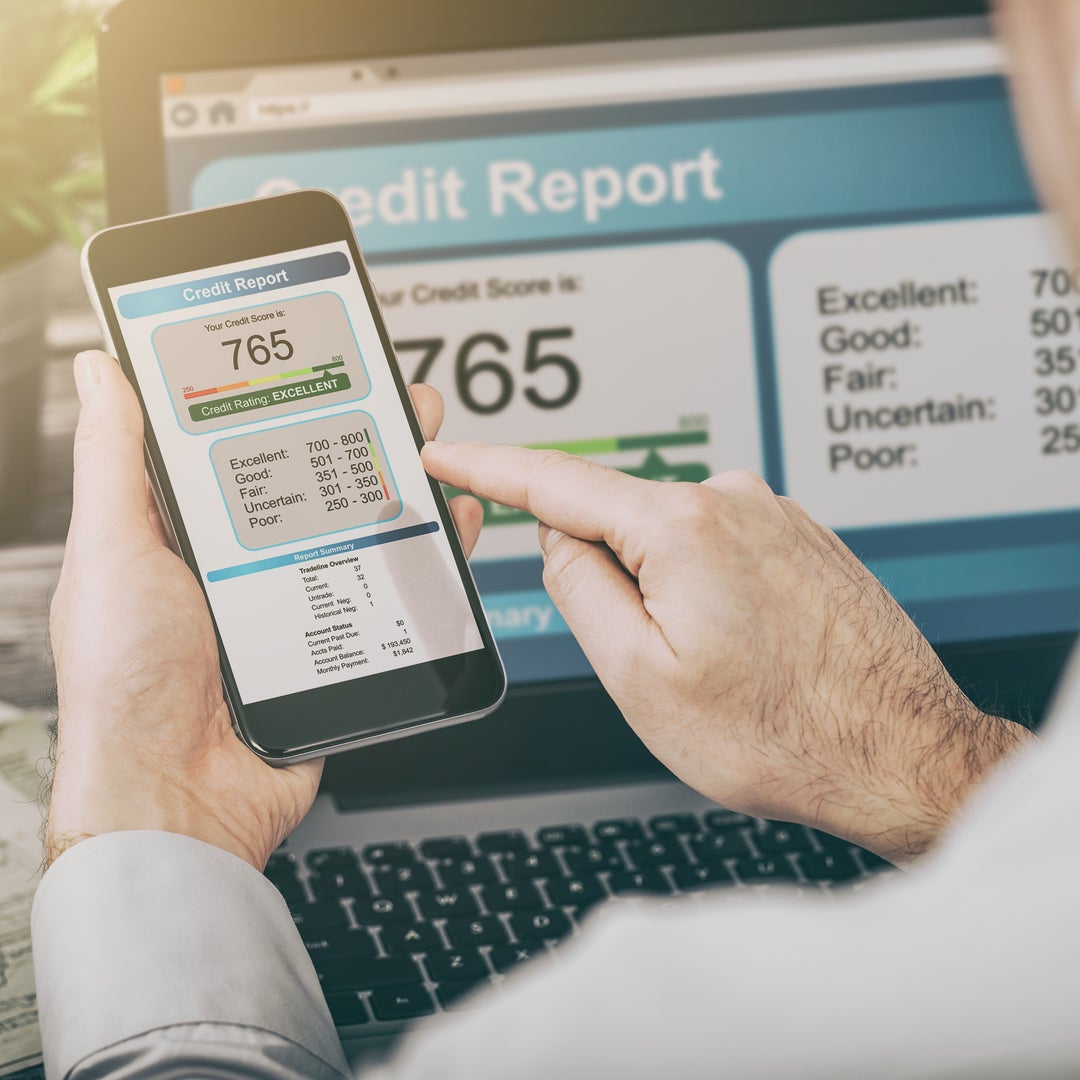What is a Good Credit Score?

Do you know what a perfect credit score is? That's a question that stumps more people than you might think. According to a recent survey by CompareCards by LendingTree, nearly four in 10 Americans have no idea how their credit score is even determined.
We get it, but a healthy credit score is a huge part of being in good financial shape. Translation: it's not something you want to ignore.
But what is a credit score, how high should it be—and why does it matter? Whether you're shopping around for a mortgage, refinancing your student loans or applying for a new credit card, your credit score is front and center.
What is a credit score, anyway?
Whenever you finance a purchase, you're using credit rather than paying for it outright. This includes everything from your favorite store credit card to your car loan. Your credit score, which reflects the information on your credit report, directly impacts your ability to take out new credit.
Before lenders start handing over cash, they want to feel confident that the borrower can be trusted to repay the loan as promised. A stronger score basically tells lenders that you're good for it, making you more likely to get approved.
Your credit score also affects the interest rates available to you (i.e. how much it'll cost you to pay back whatever you borrow). Higher rates equal higher costs.
What makes a good credit score?
This three-digit number, ranging from 300 to 850, can majorly impact your borrowing ability. So what's the highest credit score? Here's how FICO, the go-to scoring model, measures things.
Exceptional (800 to 850)
This is the holy grail, but don't feel defeated if you fall short. Only 21.8 percent of Americans have a score in this top range, according to FICO.
Very good (740 to 799)
A credit score in this range will likely open the door for the most competitive interest rates on the majority of loans. For example, a borrower with a 740 credit score is eligible for the same low home equity loan rates as someone with a score of 850, says FICO.
Good (670 to 739)
Most of us fall into this bucket with the national average currently coming in at 704. FYI, a minimum score of 680 is usually required to qualify for a mortgage.
Fair (580 to 669)
This credit score range pegs you as a risky borrower. Roughly 28 percent of people in this group are likely to become delinquent, according to FICO.
Poor (579 and under)
A score in this category can majorly cripple your borrowing power. Getting approved for new credit can be tough, and you'll most likely get stuck with high interest rates.
How is my credit score determined?
It isn't an exact science. When applying for a new loan or line of credit, other considerations—like your income and employment status—may also influence your eligibility. But there are a handful of factors that directly impact your credit score. FICO breaks it down like this:
Payment history (35 percent)
This is far and away the most critical part of the equation. Just one late payment can stay on your credit report for seven years, according to Experian. Get in the habit of making timely payments, every month. (Setting up autopay can make this a whole lot easier.)
Amount of credit owed (30 percent)
This category spotlights the amount of available credit you're using, relative to your credit limits; something called your credit-utilization ratio. This is why it's always wise to pay off your balances in full each billing cycle. If you're unable to do so for whatever reason, shoot to keep your balances under 30 percent of your total available credit, suggests Experian.
Length of credit history (15 percent)
A longer credit history will generally work in your favor. FICO zeros in on how long your credit accounts have been open, as well as how long it's been since your accounts have been used.
Credit mix (10 percent)
Diversity is the name of the game here—that and your ability to responsibly manage all your open accounts. A healthy credit mix includes revolving accounts (credit cards and lines of credit) and installment loans (student loans, mortgages and the like).
New credit (10 percent)
Applying for new credit triggers an inquiry on your credit report, which temporarily dings your score. For this reason, seeking a bunch of new credit all at once could potentially pull your score down. FICO says that for most people, each new inquiry translates to an initial drop of less than five points.
Ways to improve your credit score.
It's more than possible to rehab a less-than-perfect credit score. Your first order of business is figuring out why your score is where it is. Knowledge is power—check your credit report at least once a year. You can do this free of charge at AnnualCreditReport.com.
Your report contains a wide array of information, including your Social Security number, employment information, past and present credit accounts, credit inquiries, and any delinquent balances that have been sent to collection agencies.
Come across an error? Disputing it with the credit bureaus (Equifax, TransUnion and Experian) can boost your score relatively quickly. Credit cards you never applied for and accounts you don't recognize are two telltale signs of fraudulent activity. If you do stumble upon accounts that aren't yours, freezing your credit is an easy (and free) way to block identity thieves from opening any new credit in your name.
Once you're certain that what's on your credit report is legit, boosting your score comes down to putting out the biggest fires first. If a high credit-utilization ratio, for example, is wreaking havoc on your score, retool your budget to direct more cash toward those high balances. No matter what, be sure to pay all your open accounts on time and in full every billing cycle.
This material has been presented for informational and educational purposes only. The views expressed in the articles above are generalized and may not be appropriate for all investors. The information contained in this article should not be construed as, and may not be used in connection with, an offer to sell, or a solicitation of an offer to buy or hold, an interest in any security or investment product. There is no guarantee that past performance will recur or result in a positive outcome. Carefully consider your financial situation, including investment objective, time horizon, risk tolerance, and fees prior to making any investment decisions. No level of diversification or asset allocation can ensure profits or guarantee against losses. Article contributors are not affiliated with Acorns Advisers, LLC. and do not provide investment advice to Acorns’ clients. Acorns is not engaged in rendering tax, legal or accounting advice. Please consult a qualified professional for this type of service.








